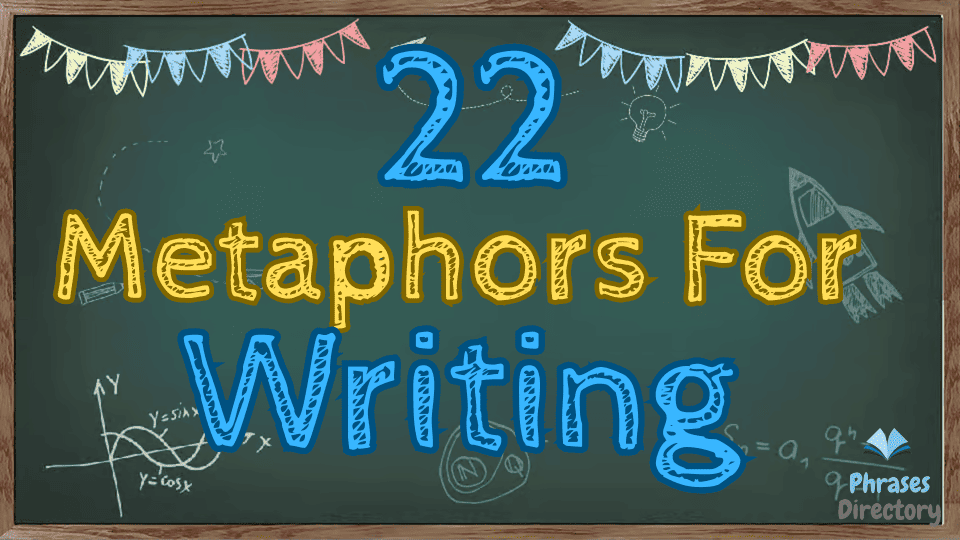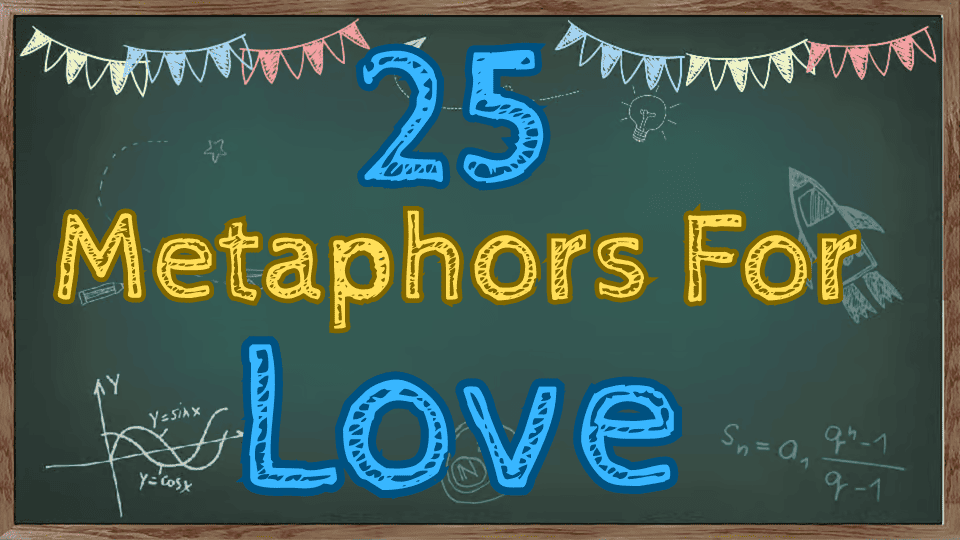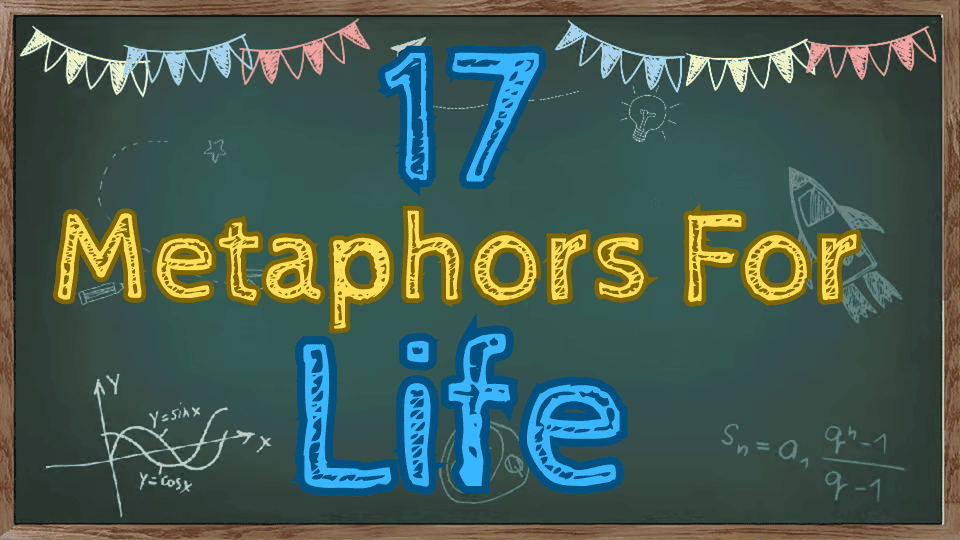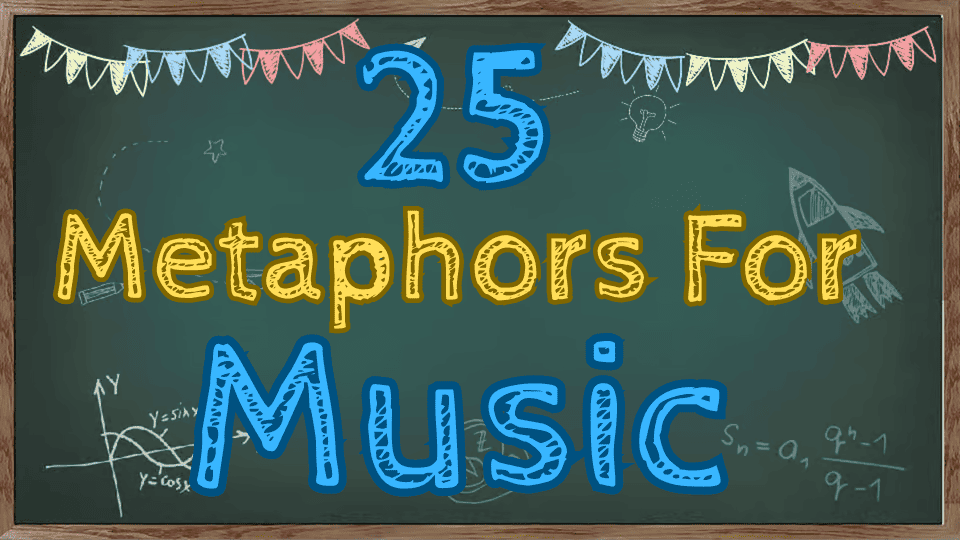The enchanting world of writing, where words are not mere tools but vibrant strokes of creativity that paint a vivid canvas of imagination.
In this article, we embark on a journey to unravel the magic of metaphors for writing—a symphony of language, a garden of words, a house of thoughts. Each metaphor is a key unlocking a unique facet of the writer’s craft.

What is a Metaphor for Writing?
At its core, a metaphor for writing is a literary device that draws a parallel between the act of writing and another concept, enriching our understanding of the craft.
Let’s delve into the meanings of these metaphors and explore how they shape the writer’s narrative landscape.
Here’s a summary of the metaphors for writing in a table:
| Metaphor | Meaning | In a Sentence |
|---|---|---|
| “The pen is mightier than the sword” | Words and ideas wield more influence than physical force or violence. | In a world driven by conflict, the pen emerges as a force mightier than the sword, shaping ideologies and history. |
| “A blank canvas” | A blank page or screen symbolizes the opportunity to create something new and original. | Faced with a blank canvas, the writer becomes an artist, wielding words as brushes to craft a masterpiece of emotions. |
| “A tapestry of words” | Writing is akin to weaving words and ideas together, creating a cohesive and intricate whole. | Each sentence, a thread; each paragraph, a weave—writing unfolds as a tapestry, rich in texture and meaning. |
| “A symphony of language” | Writing resembles the creation of music, with words and ideas forming a harmonious composition. | As the writer orchestrates words, a symphony of language echoes, resonating with the melodious rhythm of a compelling narrative. |
| “A journey of the mind” | Writing is a means of exploring and discovering new ideas, akin to a journey through unfamiliar territory. | Through the written word, embark on a captivating journey of the mind, navigating uncharted intellectual landscapes. |
| “A garden of words” | Writing is compared to the cultivation and growth of a garden, where words and ideas are carefully nurtured. | In the fertile soil of imagination, a writer plants seeds of thoughts, cultivating a vibrant garden of words that bloom into stories. |
| “A house of words” | Writing is likened to the construction of a house, where words and ideas are arranged to create a solid structure. | Each sentence lays a foundation, and every paragraph builds upon it, constructing a sturdy house of words that readers can inhabit. |
| “A puzzle of words” | Writing is akin to creating a puzzle, with words and ideas fitting together to form a cohesive whole. | Writing unfolds like a captivating puzzle, where every word is a piece, contributing to the completion of the intricate picture. |
| “A mosaic of words” | Writing is compared to the creation of a mosaic, where words and ideas are arranged to create a colorful and intricate design. | Like a skilled artisan, the writer assembles a mosaic of words, each piece contributing to the brilliance of the overall composition. |
| “A river of words” | Writing is likened to a flowing river, where words and ideas flow smoothly and naturally together. | Words cascade like a gentle river, meandering through the narrative landscape, creating a fluid and immersive reading experience. |
| “A fireworks display of language” | Writing is compared to a fireworks display, with words and ideas being bright and colorful, creating excitement and wonder. | In the realm of literature, the writer ignites a fireworks display of language, illuminating the reader’s imagination with vibrant bursts of creativity. |
| “A ladder of language” | Writing is compared to a ladder, with words and ideas being used to climb higher and reach new heights of understanding. | With each carefully chosen word, the writer ascends the ladder of language, scaling the heights of eloquence and enlightenment. |
| “A painting with words” | Writing is likened to the creation of a painting, where words and ideas are used to create a visual representation. | The writer, wielding words as brushes, crafts a painting with words, vividly depicting scenes and emotions on the canvas of the reader’s mind. |
| “A sculpture of words” | Writing is compared to the creation of a sculpture, where words and ideas are shaped and molded into a three-dimensional object. | Each sentence chisels away excess, revealing the sculpted beauty of a narrative, a carefully crafted sculpture of words. |
| “A palette of words” | Writing is likened to the selection and use of colors on a palette, where words are chosen and arranged for a specific effect. | The writer, like an artist with a palette, selects words with precision, creating a vivid palette of words that evoke emotions and set the tone. |
| “A toolbox of language” | Writing is compared to the use of tools, where words and ideas are used to accomplish a specific task or purpose. | Armed with a toolbox of language, the writer deftly employs words as tools, constructing narratives that serve a purpose and resonate with the reader. |
| “A map of words” | Writing is likened to a map, where words and ideas are used to guide the reader through a particular topic or idea. | Through the intricate cartography of language, the writer creates a map of words, guiding readers on an exploration of ideas and concepts. |
| “A theater of the mind” | Writing is compared to a play, where words and ideas create a vivid and immersive experience for the reader. | Within the theater of the mind, the writer’s words take center stage, producing a captivating play that unfolds in the reader’s imagination. |
| “A bridge of words” | Writing is likened to a bridge, where words and ideas connect and facilitate communication between different perspectives. | Like a sturdy bridge, words span the gap between ideas, connecting disparate thoughts and fostering understanding in the reader’s mind. |
| “A window into the soul” | Writing is compared to a window, where words and ideas provide a glimpse into the inner thoughts and feelings of the writer. | Through the transparent panes of eloquence, writing becomes a window into the soul, revealing the depth and intricacies of the writer’s emotions. |
| “A mirror of the world” | Writing is likened to a mirror, where words and ideas reflect and reveal the complexities of the world around us. | The written word acts as a mirror, reflecting the multifaceted nature of the world and inviting readers to introspect on its intricacies. |
| “A lens into the past” | Writing is compared to a lens, where words and ideas focus and examine events and experiences of the past. | Like a time-traveling lens, writing enables readers to peer into the past, gaining insights and understanding the tapestry of history. |
Metaphors for Writing
Writing is like painting a canvas with words, creating vivid images in the reader’s mind. You can explore more comparisons like this in a list of similes for writing here: Similes for Writing. And when it comes to expressions about writing and the craft of storytelling, there are idioms that capture the challenges and artistry of this creative process, which you can discover in this collection: Idioms for Writing.
1. The pen is mightier than the sword
Meaning: This metaphor suggests that the power of words and ideas is stronger and more influential than physical force or violence.
In a Sentence: In a world driven by conflict, the pen emerges as a force mightier than the sword, shaping ideologies and molding the course of history.
2. A blank canvas
Meaning: This metaphor likens a blank piece of paper or a blank screen to a blank canvas, suggesting that the writer has the opportunity to create something new and original.
In a Sentence: Faced with a blank canvas, the writer becomes an artist, wielding words as brushes to craft a masterpiece of emotions and ideas.
3. A tapestry of words
Meaning: This metaphor compares writing to the creation of a tapestry, with words and ideas being woven together to create a cohesive and intricate whole.
In a Sentence: Each sentence, a thread; each paragraph, a weave—writing unfolds as a tapestry, rich in texture and meaning.
4. A symphony of language
Meaning: This metaphor compares writing to the creation of music, with words and ideas coming together to form a harmonious and pleasing composition.
In a Sentence: As the writer orchestrates words, a symphony of language echoes, resonating with the melodious rhythm of a compelling narrative.
5. A journey of the mind
Meaning: This metaphor suggests that writing is a way of exploring and discovering new ideas, much like a journey through unfamiliar territory.
In a Sentence: Through the written word, embark on a captivating journey of the mind, navigating uncharted intellectual landscapes.
6. A garden of words
Meaning: This metaphor compares writing to the cultivation and growth of a garden, with words and ideas being carefully nurtured and tended.
In a Sentence: In the fertile soil of imagination, a writer plants seeds of thoughts, cultivating a vibrant garden of words that bloom into stories.
7. A house of words
Meaning: This metaphor compares writing to the construction of a house, with words and ideas being carefully arranged to create a solid and coherent structure.
In a Sentence: Each sentence lays a foundation, and every paragraph builds upon it, constructing a sturdy house of words that readers can inhabit.
8. A puzzle of words
Meaning: This metaphor compares writing to the creation of a puzzle, with words and ideas fitting together to form a cohesive whole.
In a Sentence: Writing unfolds like a captivating puzzle, where every word is a piece, contributing to the completion of the intricate picture.
9. A mosaic of words
Meaning: This metaphor compares writing to the creation of a mosaic, with words and ideas being arranged and pieced together to create a colorful and intricate design.
In a Sentence: Like a skilled artisan, the writer assembles a mosaic of words, each piece contributing to the brilliance of the overall composition.
10. A river of words
Meaning: This metaphor compares writing to a flowing river, with words and ideas flowing smoothly and naturally together.
In a Sentence: Words cascade like a gentle river, meandering through the narrative landscape, creating a fluid and immersive reading experience.
11. A fireworks display of language
Meaning: This metaphor compares writing to a fireworks display, with words and ideas being bright and colorful and creating a sense of excitement and wonder.
In a Sentence: In the realm of literature, the writer ignites a fireworks display of language, illuminating the reader’s imagination with vibrant bursts of creativity.
12. A ladder of language
Meaning: This metaphor compares writing to a ladder, with words and ideas being used to climb higher and reach new heights of understanding and insight.
In a Sentence: With each carefully chosen word, the writer ascends the ladder of language, scaling the heights of eloquence and enlightenment.
13. A painting with words
Meaning: This metaphor compares writing to the creation of a painting, with words and ideas being used to create a visual and expressive representation of a subject.
In a Sentence: The writer, wielding words as brushes, crafts a painting with words, vividly depicting scenes and emotions on the canvas of the reader’s mind.
14. A sculpture of words
Meaning: This metaphor compares writing to the creation of a sculpture, with words and ideas being shaped and molded to form a three-dimensional object.
In a Sentence: Each sentence chisels away excess, revealing the sculpted beauty of a narrative, a carefully crafted sculpture of words.
15. A palette of words
Meaning: This metaphor compares writing to the selection and use of colors on a palette, with words and ideas being chosen and arranged to create a particular effect or mood.
In a Sentence: The writer, like an artist with a palette, selects words with precision, creating a vivid palette of words that evoke emotions and set the tone.
16. A toolbox of language
Meaning: This metaphor compares writing to the use of tools, with words and ideas being used to accomplish a specific task or purpose.
In a Sentence: Armed with a toolbox of language, the writer deftly employs words as tools, constructing narratives that serve a purpose and resonate with the reader.
17. A map of words
Meaning: This metaphor compares writing to a map, with words and ideas being used to guide the reader through a particular topic or idea.
In a Sentence: Through the intricate cartography of language, the writer creates a map of words, guiding readers on an exploration of ideas and concepts.
18. A theater of the mind
Meaning: This metaphor compares writing to a play, with words and ideas being used to create a vivid and immersive experience for the reader.
In a Sentence: Within the theater of the mind, the writer’s words take center stage, producing a captivating play that unfolds in the reader’s imagination.
19. A bridge of words
Meaning: This metaphor compares writing to a bridge, with words and ideas being used to connect and facilitate communication between different ideas or perspectives.
In a Sentence: Like a sturdy bridge, words span the gap between ideas, connecting disparate thoughts and fostering understanding in the reader’s mind.
20. A window into the soul
Meaning: This metaphor compares writing to a window, with words and ideas being used to provide a glimpse into the inner thoughts and feelings of the writer.
In a Sentence: Through the transparent panes of eloquence, writing becomes a window into the soul, revealing the depth and intricacies of the writer’s emotions.
21. A mirror of the world
Meaning: This metaphor compares writing to a mirror, with words and ideas being used to reflect and reveal the complexities and nuances of the world around us.
In a Sentence: The written word acts as a mirror, reflecting the multifaceted nature of the world and inviting readers to introspect on its intricacies.
22. A lens into the past
Meaning: This metaphor compares writing to a lens, with words and ideas being used to focus and examine the events and experiences of the past.
In a Sentence: Like a time-traveling lens, writing enables readers to peer into the past, gaining insights and understanding the tapestry of history.
Here are 10 quiz questions about metaphors for writing:
Quiz 1:
- Question: What does the metaphor “The pen is mightier than the sword” suggest?a) Physical strength is more valuable than writing
b) Words and ideas have more influence than physical force
c) Swords are mightier than pens
d) Both pen and sword are equally powerful
Quiz 2:
- Question: How is writing described in the metaphor “A blank canvas”?a) A finished masterpiece
b) An empty space for creativity
c) A rigid structure
d) A chaotic mess of ideas
Quiz 3:
- Question: What does the metaphor “A symphony of language” compare writing to?a) A cacophony
b) A visual painting
c) A harmonious musical composition
d) A scientific equation
Quiz 4:
- Question: In the metaphor “A journey of the mind,” what is writing compared to?a) A physical journey
b) An exploration of new ideas
c) A destination
d) A puzzle to be solved
Quiz 5:
- Question: How does the metaphor “A garden of words” describe the process of writing?a) An arduous task
b) A spontaneous act
c) A meticulous cultivation
d) A chaotic endeavor
Quiz 6:
- Question: What does the metaphor “A puzzle of words” suggest about the nature of writing?a) Simplicity and clarity
b) Complexity and interconnection
c) Linear progression
d) A lack of structure
Quiz 7:
- Question: In the metaphor “A river of words,” what does the river symbolize?a) A stagnant pool of ideas
b) A chaotic flood of words
c) A smooth and natural flow of words
d) A barren desert of creativity
Quiz 8:
- Question: How is writing compared to a “Fireworks display of language”?a) Dull and uninteresting
b) Colorful and exciting
c) Silent and contemplative
d) Predictable and routine
Quiz 9:
- Question: What does the metaphor “A ladder of language” suggest about the progression of writing?a) A descent into confusion
b) A linear climb to success
c) A random sequence of ideas
d) A plateau of creativity
Quiz 10:
- Question: How is writing described in the metaphor “A sculpture of words”?a) A fluid and ever-changing entity
b) A rigid and unyielding structure
c) A three-dimensional and carefully crafted creation
d) An accidental collision of ideas
Conclusion
In the realm of writing, metaphors are not just literary embellishments; they are portals to new dimensions of understanding and appreciation. As we’ve journeyed through the garden of words, climbed the ladder of language, and witnessed the fireworks display of language, we’ve seen that metaphors not only enrich the writing process but also invite readers to explore the boundless possibilities of imagination. So, dear reader, may your writing be a symphony, a tapestry, and a journey—a true masterpiece on the canvas of literary expression.




